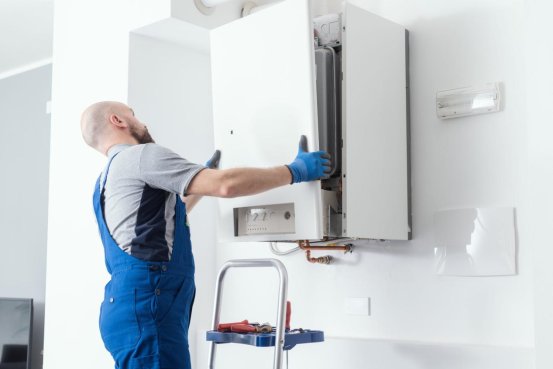

Boiler replacement grants provide vital financial support to UK homeowners and small businesses, helping to reduce the costs of upgrading to modern, energy-efficient heating. Through government-backed initiatives such as the Boiler Upgrade Scheme, applicants can secure generous funding to install low-carbon solutions. By learning the eligibility rules, application steps, and other available assistance, households can unlock opportunities to cut energy bills while supporting national sustainability goals.
Boiler replacement grants provide vital financial support to UK homeowners and small businesses, helping to reduce the costs of upgrading to modern, energy-efficient heating. Through government-backed initiatives such as the Boiler Upgrade Scheme, applicants can secure generous funding to install low-carbon solutions. By learning the eligibility rules, application steps, and other available assistance, households can unlock opportunities to cut energy bills while supporting national sustainability goals.

Replacing an old boiler can be a significant expense for both households and small enterprises. To ease this burden and encourage energy efficiency, the UK government offers several funding programs. Among the most prominent is the Boiler Upgrade Scheme (BUS), which operates in England and Wales. This scheme promotes renewable heating by offering up to £7,500 for heat pump installations and £5,000 for biomass boilers. The program is set to continue until 2028, according to current government estimates.
Eligibility criteria depend on the specific scheme. Under the Energy Company Obligation (ECO), support is targeted at low-income households and those receiving certain benefits. The aim is to reduce fuel poverty and lower carbon emissions by replacing inefficient boilers and funding additional energy-saving measures such as insulation. Generally, applicants must own a property connected to mains gas and have a boiler at least eight years old, as highlighted in Vaillant’s guidance.
The BUS encourages homeowners and small business operators in England and Wales to adopt renewable heating systems. To qualify, properties must have a valid Energy Performance Certificate and install a low-carbon heating solution—such as an air source or ground source heat pump—after April 2022. Homeowners, landlords, and small businesses are all eligible, but social housing tenants and properties supported by other heating schemes are excluded.
Applying for a boiler grant follows a structured process. Applicants start with an online application and obtain quotes from accredited installers. Once a quote is accepted from a Microgeneration Certification Scheme (MCS) approved provider, installation can proceed. Timelines vary: air source heat pumps and biomass boilers typically need to be installed within three months, while ground source systems may take up to six months. These rules ensure grants are used effectively and installations comply with official standards, as explained by E.ON Next.
In addition to the BUS, other programs provide help. The Affordable Warmth Obligation, under the ECO scheme, offers free boiler replacements for qualifying low-income households. In Scotland, the Home Energy Scotland Grant and Loan scheme provides both grants and interest-free loans to support energy efficiency, with special options for rural and island areas. Together, these initiatives aim to reduce dependence on fossil fuels and speed up the adoption of renewable heating, according to Eco Energy Services.
Exploring boiler replacement grants delivers benefits beyond cost savings. These initiatives reduce environmental impact, improve home energy efficiency, and lower heating bills. Upgrading to modern heating enhances comfort while supporting the UK’s carbon reduction commitments. By understanding the criteria and following the application steps, households and small businesses can secure meaningful support and take proactive steps toward sustainable living.